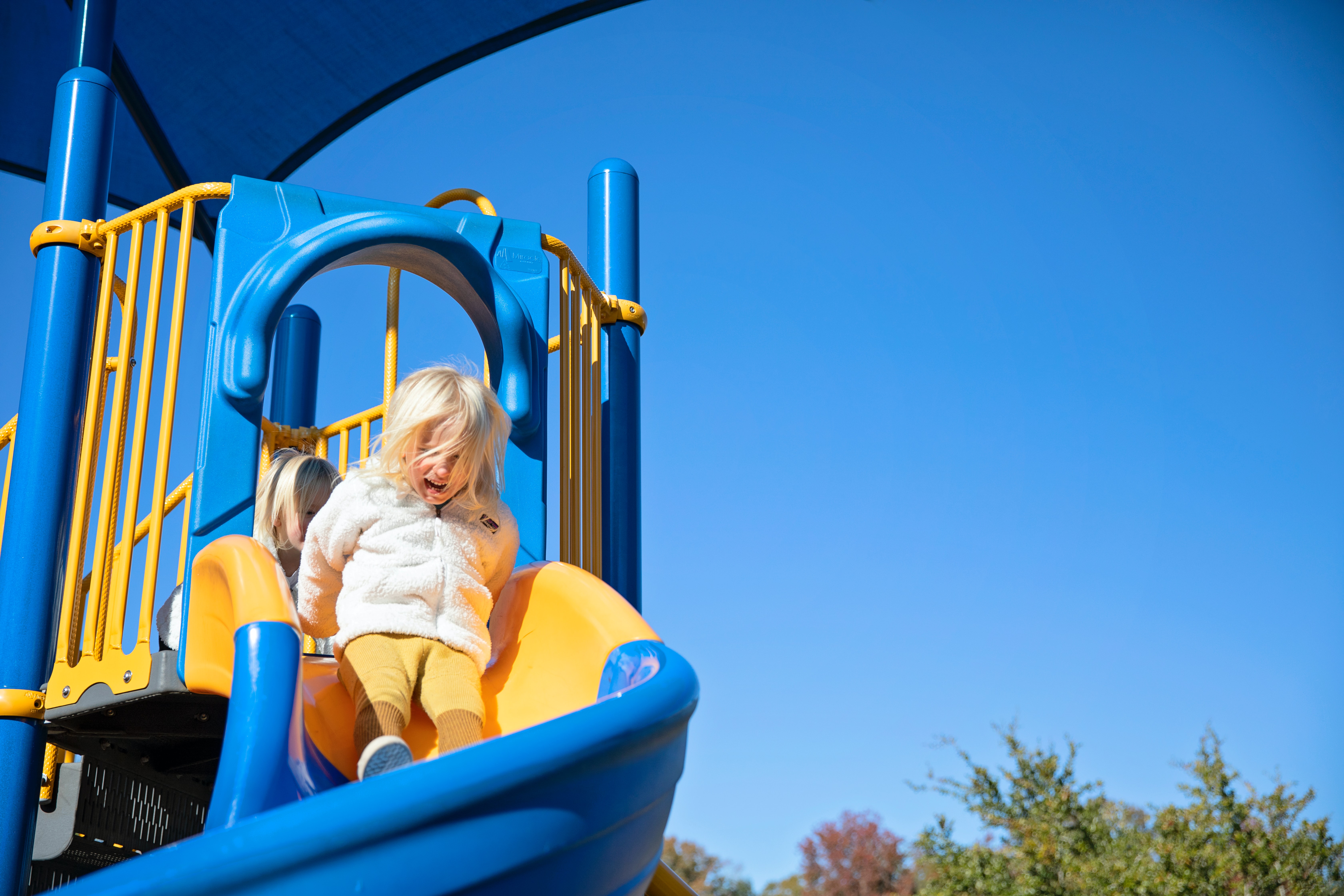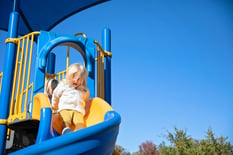Tips for Inclusive Playgrounds
Posted by May Recreation Content Team on

Playgrounds are intended to serve all children, regardless of their physical or intellectual abilities. Unfortunately, not all playgrounds meet this objective. With proper planning and execution, however, you can create a space that meets the needs of everyone.
To build or modify a playground to be more inclusive, follow the tips below.
1. Choose brighter colors.
The colors of equipment you choose to install on the playground can make a difference for some children with disabilities. For example, children who have vision deficits will have an easier time seeing playground equipment and distinguishing different structures from one another if you choose brighter colors.
2. Plan spaces and surfaces carefully.
Some children with special needs may have trouble navigating through narrow spaces or walking on uneven surfaces. In addition, some children may need to remain with an adult at all times. Because adults are naturally larger than children, narrow spaces can be problematic. You can improve inclusivity on your playground by keeping surfaces as even as possible and avoiding the use of small or narrow pathways and openings.
spaces or walking on uneven surfaces. In addition, some children may need to remain with an adult at all times. Because adults are naturally larger than children, narrow spaces can be problematic. You can improve inclusivity on your playground by keeping surfaces as even as possible and avoiding the use of small or narrow pathways and openings.
3. Include plenty of ground-level activities.
Many children with disabilities lack the upper body strength needed to climb. In other cases, children may be unable to climb altogether because they are confined to a wheelchair or have other supportive equipment that makes it impossible. You can provide a more inclusive playground for these children if you include plenty of ground-level activities, such as swings, ropes, and number boards.
4. Add a modified swing.
The swings are a common favorite on any playground. Unfortunately, children with limited physical abilities are often unable to use a traditional swing set, causing them to miss out on one of the most fun activities at the park. If you want your playground to be more inclusive, consider adding modified swings designed to serve children with mobility issues. Some of these swings are designed for children that aren't able to remain upright in a traditional swing, while others can accommodate wheelchairs.
5. Add additional modified equipment.
Swings are not the only playground equipment that can be modified for better inclusivity. You can also install other modified equipment that accommodates limited mobility, such as wider slides, raised sandboxes, and special stairs. Consider adding some of these features to your playground to make it more user-friendly for children that can't use traditional equipment.
Anyone building or operating a playground wants their space to be as fun and welcoming as possible for all children. Following these tips will help you to create a space that offers something for every child, including those who cannot use traditional playground equipment and/or require constant adult supervision.
If you are planning to build a new inclusive playground, or if you are hoping to modify an existing playground so that it serves a greater number of children, you can simplify things by working with a company that manufactures and sells inclusive playground equipment. Please contact May Recreation today to learn more about these products.
